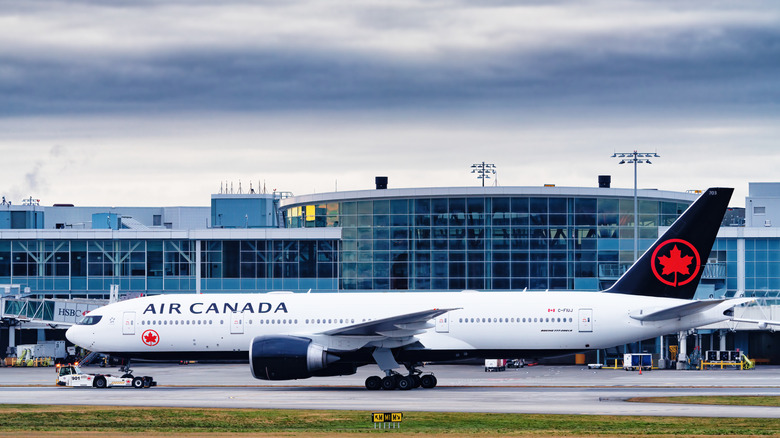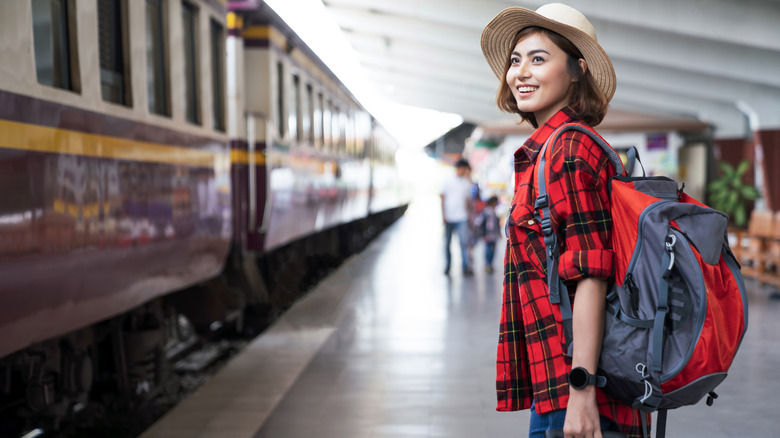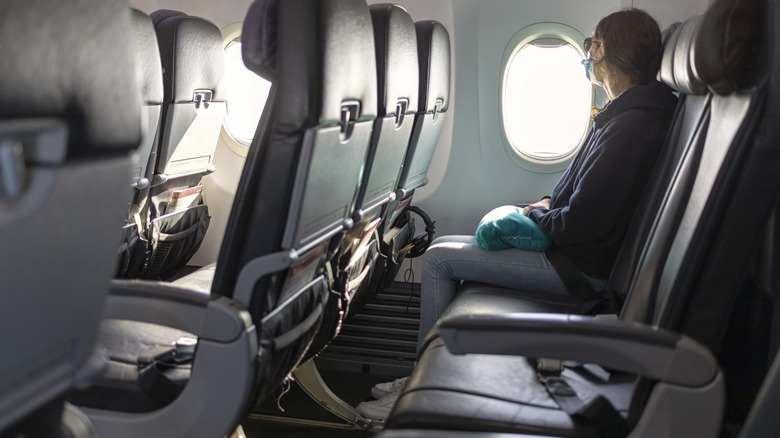Air Canada's New Basic Economy Rules Could Shake Up Your Travel Plans
Airlines worldwide made over $33 billion in revenue from bag fees in 2023, with seating fees making an additional similar contribution (airlines in the U.S. earned more from seats than bags). Seeing the opportunity for greater profit margins, earlier this year, Air Canada tried to follow its main domestic competitors and quietly made changes to its basic economy fares for two days. However, after tremendous blowback, the company reversed its policy — until last week.
The airline announced all Air Canada Economy Basic tickets booked on or after Jan 3, 2025, will be subject to two major changes regarded baggage and seating. These changes will significantly affect all budget travelers flying on Air Canada internationally within North America, including flights to/from Hawaii, Mexico, and the Caribbean. Currently, passengers who have purchased an Air Canada Economy Basic ticket are allowed one carry-on bag and one personal item underneath the seat in front of them. However, all Economy Basic fares purchased from January 3, 2025, with a final destination in North America will include a personal item only. If you buy an Economy Basic ticket and know you need to bring a bag, you'll have to pay $35 to check it. These changes put Air Canada in line with Canadian carriers WestJet and Porter Airlines, both of which charge passengers who buy a basic economy ticket for a carry-on bag, as does Air Canada's Star Alliance Partner, United Airlines.
Air Canada's changes will also impact a passenger's seat assignment. From January 21, 2025, all Economy Basic fares will include a seat assignment from the airline at check-in. If passengers wish to select their seats in advance or after being given a seat at check-in, they will be able to do so for a fee. The airline notes that these changes will not affect Aeroplan Elite members nor Star Alliance Gold members, and families can still sit together.
How to get around the fees
Budget travelers heading to, from, or within the Great White North will now have fewer options for packing without paying. Air Canada is unique in that it charges for luggage based on the traveler's destination, the traveler's Aeroplan status with the airline, the fare type, and the size of the item. Travelers flying internationally from Vancouver to Orlando will pay $36.75 for a bag, while domestic travelers to Toronto will pay $42. However, be careful: If you arrive at the gate and your bag is too big — the allowed size from Air Canada's website is 33 cm (13 in) in height, 16 cm (6 in) in depth, and 43 cm (17 in) in width, about the size of a laptop bag — you will have to pay $65 to have it checked at the gate. If you're traveling on a tight budget, consider using these simple tips for one-bag travel or following the 54321 packing rule to save room for souvenirs and money for more life-changing experiences.
While Air Canada will tighten the rules for its lowest fare class, the airline is also including a second checked bag with its Economy Comfort fares. All Economy Comfort fares purchased from January 3, 2025, will now include two checked bags with the fare, in addition to all existing perks such as a more comfortable seat, a meal box, and the flexibility to change the flight if needed. To offset or minimize the bag fees, Canadian travelers can apply for TD Aeroplan credit cards, which provide a free checked bag for up to eight other travelers on the same reservation. For Americans, Chase's Aeroplan cards offer a similar benefit.
Basic economy isn't the same as economy
Over the last decade, changes in the airline world have rarely been good for consumers. From points being devalued, to the introduction of basic economy fares across much of the industry, airlines are finding more ways to squeeze more passengers into seats and more money out of passengers' wallets. Major airlines in the U.S., Canada, and Europe have all now added light or basic economy fares to compete with low-cost carriers, which provide passengers a seat and few included extras.
Even if you don't have baggage, basic economy tickets generally do — and lots of it! Delta Airlines introduced basic economy fares in 2013, which have now become standardized across the airline industry in terms of having many conditions for the traveler. Most basic economy tickets, regardless of the airline, provide very little wiggle room in case your plans change, few benefits for airline status, and are limited in terms of where you will board, sit, and how much luggage you can bring on board, even though the seat is the same.
Moreover, basic economy tickets normally aren't refundable after 24 hours, even for a travel credit. And even worse, they can even be more expensive if the price drops after you've booked. Standard economy tickets normally cost a few dollars more, however, they include what we are all used to: choose your seat, bring your carry-on, earn your miles, and get a bit of flexibility with a drink and snack. Since they have these added benefits, airlines try to push you to "upgrade" to a standard ticket by showing you the lowest fare first and what you are missing. Even if you do find a lower fare with a basic economy ticket, do the math and your homework to see whether it makes sense to fly in basic economy.


